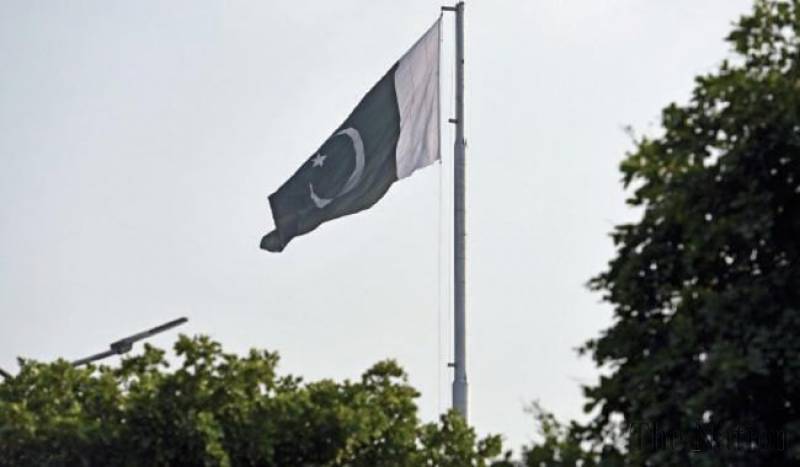It is a matter of great concern that most of us have given up on Pakistan. Hope is fading fast in the motherland. The spirit by which we started our journey has almost died down. While the innings of the first generation is winding up, the next is not fully prepared to take over. The free country in which we opened our eyes is not the same for our children. There are several reasons for this decline, a detailed analysis is required.
Views differ on this subject. Some believe that we have been in a free fall since 1971 after the dismemberment of Quaid’s Pakistan while others are of the opinion that flood gates of destruction opened with the 1985 party-less elections. Today Pakistan has the worst possible political leadership due to the misadventure of the third khaki usurper.
Pakistan came into being as a result of political struggle, ably led by Quaid-e-Azam Muhammad Ali Jinnah and conceived by Allama Iqbal. Muslim League, the founding party, was founded on December 30 1906 at Dhaka. Sir Agha Khan-III was appointed its first president. Headquarters then moved to Lucknow. All India Muslim League (AIML) emerged as the voice of the Muslims of India that demanded a separate homeland. Minto Park – currently Minar-e-Pakistan – was the venue where the formal resolution was passed on March 23, 1940 that paved the way for freedom.
A few years back I was conducting a research on the impact of universities in determining national priorities. The Aligarh University was ranked very high. It played a pivotal role in the creation of Pakistan. Very few educational institutions have created such an impact. The other two institutions that were highlighted were: University of Chicago and University of California at Berkley; both played an important role in stopping the Vietnam War.
At the time of partition most of the political leadership in the Western Wing migrated from India. The Eastern Wing had genuine indigenous leaders like Khawaja Nazim-ud-din, Hussain Shaheed Suharwardy, Maulana Fazal-ul-Haq etc. Punjab was under the Unionists while NWFP now Khyber Pakhtunkha (KPK) was being ruled by the Pro-Congress Red Shirts. It was through the famous Qayyum Khan led referendum that the province decided to join Pakistan.
The formative years were not easy; the founding fathers tried their best and there was simplicity and honesty of purpose. Transformation of the colonial institutions was an uphill task for which there was no unified game plan. Quaid passed away after a year. Khawaja Nazim-ud-din succeeded him as Governor General (GG). Liaquat Ali Khan as the first Prime Minister (PM) stood his ground. The colonial establishment was uneasy by his march towards freedom and decided to conspire against him. He was assassinated in 1951 while addressing a public rally in Rawalpindi now named after him. Khawaja Nazim-ud-din the GG was made to step down as PM and Baboo Ghulam Muhammad was inducted in his place.
As a Muslim League child most of my questions were answered by the movement stalwarts, however, one query remains unanswered. Why was the first PM not given a state funeral? In fact with his assassination the slide had started. The inherited colonial institutions came in the way of our transformation to freedom. Gradually the efficiency and professionalism also declined in most civilian institutions while the Khakis remained intact. Today governance is nonexistent, civil administration in Punjab has become a private organ of the ruling party and the common man is frustrated. A few good individuals left in the system have been rendered helpless. There is a loss of direction and will.
Seventy years is not a short span of time to build national institutions provided the transition is accomplished. There is nothing wrong with Pakistan as a country but unfortunately everything is wrong with the people who run it. Despite failures they continue to hold on to power with lame excuses of not being able to deliver. No one is willing to step aside. Yes indeed there is talent, but there is no desire to utilize it for the benefit of the nation.
Pakistan was conceived as a democracy by the founding fathers and only the supremacy of the ballot can save it. Which means: deliver or get out of the way – that is the beauty of a democratic system. President Jimmy Carter, despite being an able leader, did not win a second term in office as the voters were unhappy with his performance. He could not manipulate the electoral exercise to remain in office as the Election Commission was autonomous and neutral. In India the lure of Shining Bharat could not keep Vajpayee in power. With the absence of strong national institutions no country can sustain or move forward. While a vast majority of people have given up, there still remain a sizeable number of individuals both at home and abroad who can turn the country around. Focus has to be on nation building and strengthening of institutions for which merit has to prevail. Despite the prevailing gloom and doom all is not lost. Naya Pakistan will emerge from the ashes of corrupt and inept political leadership imposed on us.






